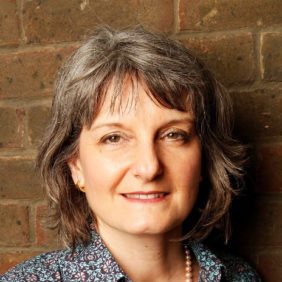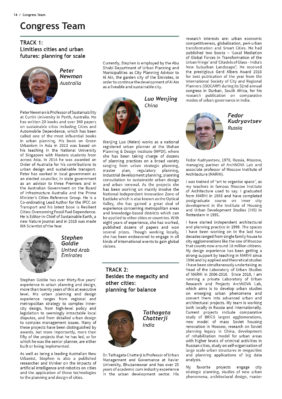 |
General rapporteur Martina Juvara, United Kingdom “With urbanisation continuing at pace and a globalizing economy, metropolitan areas are morphing into megacities: a different model of urban development, which is no longer the unexpected by-product of fast-growing countries – a beacon to be followed for some, and for others simply dehumanizing.” |
Our aim, with the 55th ISOCARP World Planning Congress, is to investigate the future and explore the opportunities offered by these cities without limits: what makes them successful and why they are so appealing and to whom. We want to focus on their supposed inevitability but also on the possible alternatives for achieving global influence without the mega-scale. This is our target for this year: exploring ‘planning beyond limits’.
This does not mean that the work of last year at Bodø is being put behind our backs: sustainability, resilience and the role of cities in our changing planet is at the forefront of thinking this year too. Jakarta provides the perfect context: it is the second largest agglomeration in the world (over 30 million), one of the biggest plastic waste generators (up to 2,400 tons daily) and the fastest sinking city (up to 15cm a year, with almost half the city below sea level already). Almost 40% of Indonesian citizens are dissatisfied with the living quality of the cities in which they live, according to the recently released 2017 Indonesia Most Livable City Index by the Indonesian Association of Urban & Regional Planners.
The Congress wants to explore two overarching themes.
On the one hand, the global role of megacities and how scale is becoming power: what are the dynamics that lead to the emergence of megacities? Are they necessary to achieve global influence or are there alternatives? Can cities without limits be planned, nurtured and grown as a way to promote a positive future for a country and for the planet?
On the other hand, we will also explore the strategies, considered or maybe tried out, to promote livability, well-being, exemplary sustainability, innovation and responsive governance. If megacities develop into powerful regions, they also play an unprecedented role in shaping the social, economic and environmental evolution of our planet: megacities have the chance to lead the world and change the fate of global challenges such as climate change, security, innovation, financing and digitalisation. They can provide the test-bed and the drive to experiment with new technologies and proactive governance that respond to all scales, from global to local, and to all people from international leaders to children and the migrant poor.
Very importantly the 55th ISOCARP World Planning Congress also wants to explore the back, beside and beyond of metropolitan areas and limitless cities: their hinterland often sapped of energy but perhaps also shining of reflected light, and other cities, regions and metropolitan areas which choose to lead along different paths.
‘Beyond the Metropolis’ calls for all who are interested in ‘planning beyond limits’ to join in an intense week of talks, debates, exchanges and learning about our shared future. We encourage people from research, professional practice, government or NGOs to come and share their ideas and beliefs – being open to be challenged and enriched by the discussions. We expect no less than future orientated thinking and limitless horizons.
The Congress is organised around seven thematic tracks, each with research papers, presentations, roundtable debates and even structured ‘side sessions’. Each track will also host dedicated sections centered on learning from Indonesia, and Jakarta in particular, and discussing their future. Keynote speakers of international standing will help us move the agenda forward.
 Track 1 LIMITLESS CITIES and urban futures: planning for scale
Track 1 LIMITLESS CITIES and urban futures: planning for scale
Peter Newman, Australia
Stephen Goldie, United Arab Emirates
Wenjing Luo, China
Track 2: BESIDE THE MEGACITY and the role of other cities and areas: planning for balance
Tathagata Chatterji, India
Fedor Kudryavtsev, Russia
Track 3 LIVEABLE PLACES and healthy cities: planning for people
Jens Aerts, Belgium/USA
Mahak Agrawal, India
Track 4 KNOWLEDGE ECONOMIES and identity: planning for culture
Nasim Iranmanesh, India
Piotr Lorens, Poland
Track 5: SMART FUTURES and sustainability: planning for innovation
Dorota Kamrowska-Zaluska, Poland
Adriano Bisello, Italy
Awais Piracha, Australia
Track 6 CHANGING ENVIRONMENT and risks: planning for resilience
Markus Appenzeller, The Netherlands
Juanee Cilliers, South Africa
Track 7 URBAN GOVERNANCE and planning profession: planning for future
Eric Huybrechts, France
Jennilee Kohima, Namibia